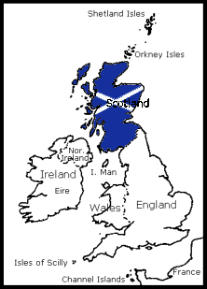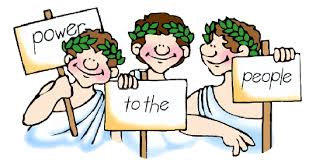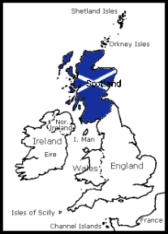



What is the UK?
Scottish Independence?
In late July 1950, I was taken to London by my parents and put on a train to Hawick, in the Scottish Borders. (Not possible since 1969 when Dr. Beeching closed that section of line. The refurbished Borders Railway, opened in Sept 2015, does not reach as far as Hawick.) I was 12 years old and excited at being allowed to travel on my own for the first time and to spend the summer with Scottish relatives. It still holds pride of place in my memory as one of the best holidays I ever had. There was just one awkward moment which happened as I stepped off the train at Hawick. Two men, who were standing close to where I was getting off the train, were chatting. The first words I heard as I stepped on to Scottish soil were “Of course, I blame the English government for the mess we’re in”! That was a shock to me. I thought of “the government” at that time as being the “Labour government” or the “British government”. In my 12-year-old naivety, it never occurred to me that there could be another point of view! On 18th Sept 2014, the Scots decided, for now, that they should remain within the United Kingdom. Part of the reason for them narrowly rejecting independence is the promise from Westminster that the Scottish parliament will be given extended powers. The process of extending the powers of the Scottish parliament descended into a piecemeal argument over what changes should be made to the Welsh Assembly and Westminster procedures to convince voters in Wales and England that their governments are keeping pace with the changes for Scotland. Alarm bells ring - “holes” and “stop digging” are watchwords here.
After the Referendum
In discussions on BBC TV immediately following the referendum, the following comments were made. “This is a fragile union.” “Westminster is part of the problem.” Neither of these truths seem to be playing any part of the thinking going on in Westminster. If the Union is fragile, it should be strengthened. If Westminster is part of the problem then it can’t be part of the answer. All the proposals that have been put forward to improve the situation, seem to me to be actually making the situation more complicated and therefore, worse. The people in each country of the UK have a need for their identity to be recognised and their cultures to be reflected in how they are governed; government of the Scots by the Scots, of the English by the English and so on. That does not mean that everyone wants the UK to fragment into a bunch of small independent countries. I think the Union and “being British” is still important to most Britons, where ever they live. Can this be achieved? Of course it can, but it won’t be unless one really important factor, one that has never been acknowledged in Westminster, is made the pivotal point on which restructuring the government is carried out. What is the problem that no one will acknowledge?
Is there a solution?
Amazingly, the answer is simple, if somewhat expensive. However, Westminster is falling apart, literally. To keep it going will cost a vast sum of money. If we are going to spend so much money keeping something going that more and more people want to see the end of, why not, instead, spend the money on something that they would support, something that they can see the sense of? What people want is the end of Anglo-Norman domination of the UK. This can be achieved by removing the Anglo-centric elements of the structure and symbols of the UK. Such changes must include: moving the UK government out of London, ▪ using a refurbished Westminster for an English parliament, ▪ creating a new British flag, British anthem and British bank notes. The following pages propose changes to make the Union stronger; to make a British government more acceptable, even desirable, to those governed and to remove the implications in several of our ”British” symbols, that the English dominate (i.e. rule) the Union. Action is needed - before it’s too late!

© Walter Jardine 2016


UK/EU





What is the UK?
Scottish Independence?
In late July 1950, I was taken to London by my parents and put on a train to Hawick, in the Scottish Borders. (Not possible since 1969 when Dr. Beeching closed that section of line. The refurbished Borders Railway, opened in Sept 2015, does not reach as far as Hawick.) I was 12 years old and excited at being allowed to travel on my own for the first time and to spend the summer with Scottish relatives. It still holds pride of place in my memory as one of the best holidays I ever had. There was just one awkward moment which happened as I stepped off the train at Hawick. Two men, who were standing close to where I was getting off the train, were chatting. The first words I heard as I stepped on to Scottish soil were “Of course, I blame the English government for the mess we’re in”! That was a shock to me. I thought of “the government” at that time as being the “Labour government” or the “British government”. In my 12-year-old naivety, it never occurred to me that there could be another point of view! On 18th Sept 2014, the Scots decided, for now, that they should remain within the United Kingdom. Part of the reason for them narrowly rejecting independence is the promise from Westminster that the Scottish parliament will be given extended powers. The process of extending the powers of the Scottish parliament descended into a piecemeal argument over what changes should be made to the Welsh Assembly and Westminster procedures to convince voters in Wales and England that their governments are keeping pace with the changes for Scotland. Alarm bells ring - “holes” and “stop digging” are watchwords here.
After the Referendum
In discussions on BBC TV immediately following the referendum, the following comments were made. “This is a fragile union.” “Westminster is part of the problem.” Neither of these truths seem to be playing any part of the thinking going on in Westminster. If the Union is fragile, it should be strengthened. If Westminster is part of the problem then it can’t be part of the answer. All the proposals that have been put forward to improve the situation, seem to me to be actually making the situation more complicated and therefore, worse. The people in each country of the UK have a need for their identity to be recognised and their cultures to be reflected in how they are governed; government of the Scots by the Scots, of the English by the English and so on. That does not mean that everyone wants the UK to fragment into a bunch of small independent countries. I think the Union and “being British” is still important to most Britons, where ever they live. Can this be achieved? Of course it can, but it won’t be unless one really important factor, one that has never been acknowledged in Westminster, is made the pivotal point on which restructuring the government is carried out. What is the problem that no one will acknowledge?
Is there a solution?
Amazingly, the answer is simple, if somewhat expensive. However, Westminster is falling apart, literally. To keep it going will cost a vast sum of money. If we are going to spend so much money keeping something going that more and more people want to see the end of, why not, instead, spend the money on something that they would support, something that they can see the sense of? What people want is the end of Anglo-Norman domination of the UK. This can be achieved by removing the Anglo-centric elements of the structure and symbols of the UK. Such changes must include: moving the UK government out of London, ▪ using a refurbished Westminster for an English parliament, ▪ creating a new British flag, British anthem and British bank notes. The following pages propose changes to make the Union stronger; to make a British government more acceptable, even desirable, to those governed and to remove the implications in several of our ”British” symbols, that the English dominate (i.e. rule) the Union. Action is needed - before it’s too late!





















